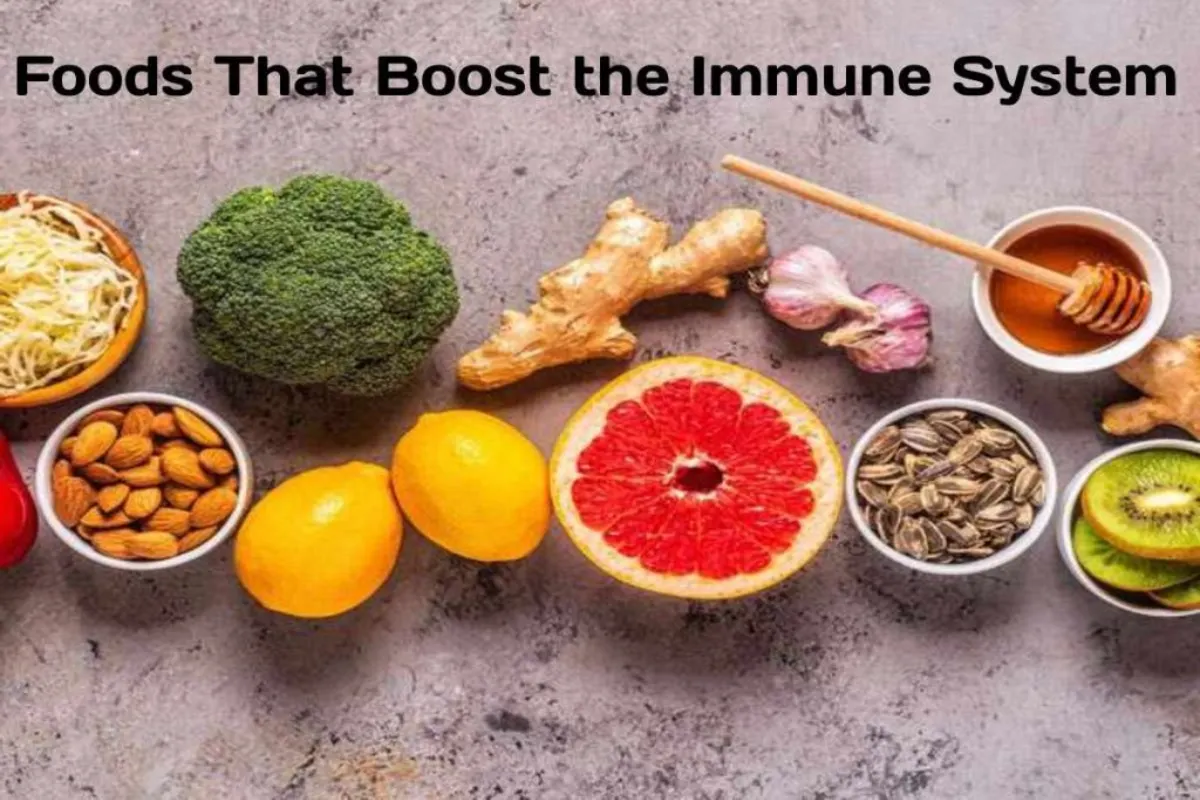Table of Contents
Immune System
Food is a significant factor for the immune system. If it is inadequate or insufficient, there is a fall in the defences; if it is balanced, it keeps them in shape or strengthens them.
The mission of the Immune System is to keep infectious microorganisms that cause diseases, certain bacteria, viruses, and fungi, out of the body.
The immune system acts thanks to a perfect network of cells (lymphocytes), organs (thymus, spleen, bone marrow) and tissues (mucous membranes such as Peyer’s patches in the intestine), vessels, and lymph nodes. All of them make up our immune system working as a team to defend ourselves against disease-causing germs۔
Foods to Strengthen the Immune System
1. Eat foods that contain vitamin C
According to the FAO, the word vitamin comes from the Latin ‘vita,’ which means life. Several foods contain vitamins that help the immune system defend itself against infections and provide antioxidant properties that protect the cells and tissues of your body.
Vitamin C initiates in the citrus fruit group like guava, orange, tangerine, kiwi, tomato, and green leafy vegetables like broccoli.
2. Foods rich in vitamin A
Vitamin A creates nutrients of animal and plant origin, which are characterized by being easily absorbed by the body.
The best way to grow vitamin A is by consuming liver, dairy products such as milk, eggs, butter, or bright yellow or orange fruits and vegetables such as carrots, pumpkin, mango, and papaya. The FAO also recommends consuming dark green vegetables such as chard and spinach.
3. Foods that contain vitamin B
B-complex vitamins help your body’s cells generate energy from food and use the nutrients to repair tissue. The FAO indicates that strengthening your muscular, cardiovascular, and gastrointestinal systems benefits the immune system and reduces infectious diseases in older adults.
The most excellent way to get B vitamins is by eating whole grains, oatmeal, wheat, peanuts, some fruits, pork, fish, green leafy vegetables, asparagus, and foods that contain protein.
4. Hydrate your body with water
The lack of liquid in the body favours the dehydration course, makes the body lose energy, and exposes to a drop in the protection system. The importance of drinking water daily is that it contributes to:
- Regulate and maintain body temperature.
- Allow the transport of nutrients to the cells.
- Lubricates the joints.
- Provide mineral substances necessary for the proper functioning of the body.
5. Eat fish and shellfish
Fish are considered the primary source of fatty acids such as omega-three and proteins that service the proper functioning of the immune system. So, according to a BBC Mundo report, marine animals contain zinc. Therefore a chemical element that helps cells called lymphocytes respond appropriately to the attack of viruses or bacteria.
What Foods should you avoid?
So it recommends avoiding dealing with foods (sugar, processed meats, white flour, saturated fats). Since, when consuming them, those that are healthy and contribute to the immune system are left aside. In addition, they cause inflammation in the body, which impairs the immune response.
Do not forget that it is crucial to do physical activity, sleep well and avoid alcohol and tobacco consumption.
Practicing exercise and its effect on the Immune System
It helps the immune system to function correctly and also to be in shape. And it is that the practice of moderate Exercise provides an anti-inflammatory effect on the immune system and, in addition, decreases the probability of suffering from infections. To achieve this effect, you must do it regularly and spend at least 20 or 30 minutes daily.
To better understand the benefits of sport, Dr Perez explains: “Exercise causes changes in antibodies and leukocytes. Therefore leucocytes are the lockups of the immune system that fight diseases through antibodies and proteins that neutralise bacteria and agents. So these antibodies and leukocytes circulate faster with regular Exercise to detect and fight diseases more quickly and effectively.”
Also, body temperature rises during Exercise and lingers immediately afterwards, preventing bacterial growth. Dr Perez says that “this temperature rise can help the body better fight an infection, with a result similar to what happens when you have a fever.”
Conclusion
“A regular diet that includes vegetables, fruits, and other natural products is the best way to provide the immune system with the vitamins and minerals that strengthen it.

